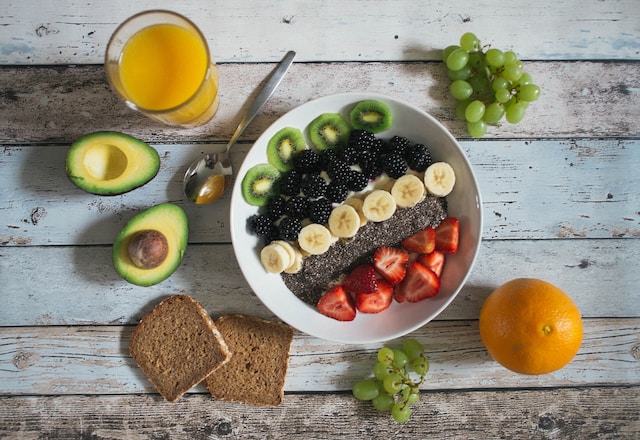Embarking on a journey of healthy eating doesn’t necessarily mean a drastic overhaul of your diet overnight. Instead, it’s about making smart, sustainable choices that contribute to long-term wellbeing. Here are ten practical tips to guide you towards a more balanced and nutritious dietary routine.
1. Prioritize Whole Foods
Opt for whole, unprocessed foods like fresh fruits, vegetables, lean proteins, whole grains, and nuts. These foods are rich in essential nutrients and often have fewer additives.
2. Stay Hydrated
Drink plenty of water throughout the day. Water supports various bodily functions, including digestion and temperature regulation. Consider carrying a reusable water bottle to ensure you’re hydrating regularly.
3. Limit Sugar Intake
Excessive sugar consumption can lead to various health issues, including obesity and heart diseases. Limit foods and drinks with added sugars, such as sodas, candies, and many processed foods.
4. Watch Your Portion Sizes
It’s not just about what you eat, but also how much. Even healthy foods can contribute to weight gain when consumed in large amounts. Familiarize yourself with standard serving sizes to avoid overeating.
5. Diversify Your Diet
Variety is essential for obtaining all the nutrients your body needs. Try to eat different foods every week, and incorporate a mix of proteins, grains, and colorful vegetables and fruits into your meals.
6. Minimize Processed Foods
While they might be convenient, many processed foods are high in unhealthy fats, sugars, and sodium. Read labels carefully, and prioritize foods with a shorter ingredient list.
7. Eat Mindfully
Pay attention to what you’re eating, savor each bite, and listen to your body’s hunger and fullness cues. Eating mindfully can help you enjoy your food more and prevent overeating.
8. Limit Sodium Intake
High sodium consumption can contribute to elevated blood pressure. Reduce the amount of salt you add to food and be cautious with packaged foods, which often contain high levels of hidden sodium.
9. Include Healthy Fats
Not all fats are bad. Monounsaturated and polyunsaturated fats, found in olive oil, avocados, nuts, and fatty fish, can be beneficial for heart health. Include these in your diet while limiting saturated and trans fats.
10. Plan Your Meals
Taking some time each week to plan your meals can help ensure a balanced diet and prevent last-minute temptations. It also helps in reducing food waste and can be cost-effective.
Conclusion
Healthy eating is an ongoing commitment, but with a little knowledge and preparation, it’s an achievable goal. By incorporating these tips into your daily routine, you’re setting yourself up for a life filled with better health, more energy, and a deeper appreciation for the food you eat.


